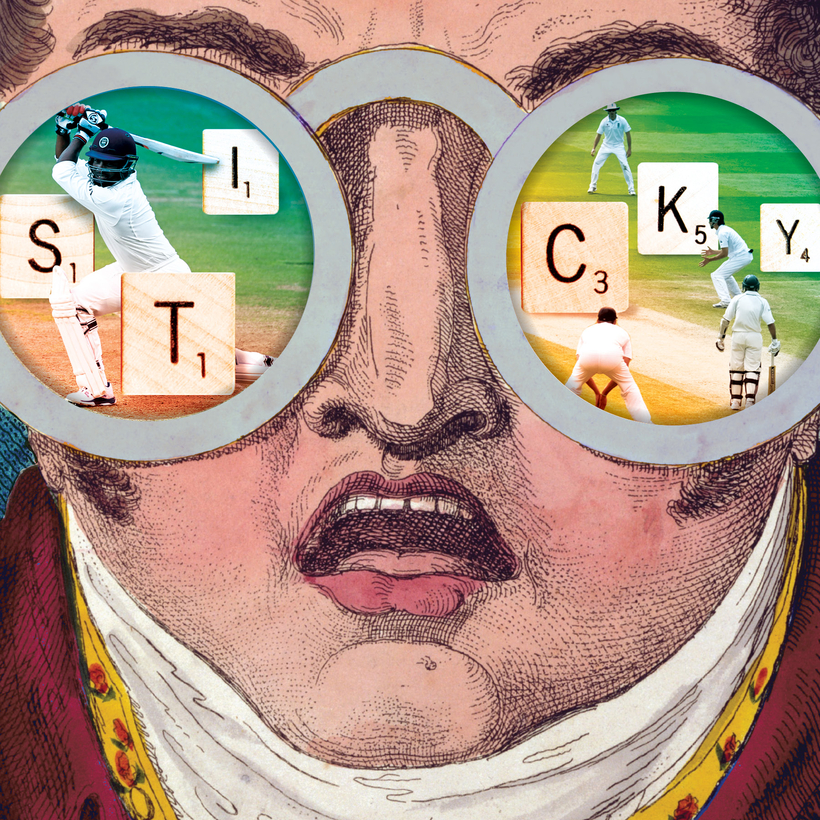These days you can wait an entire news cycle—i.e., one hour—for a story to come along and make you feel terribly old and cross. And then three arrive like buses, as happened last week. This country’s crusty conservatives—still in deep mourning for Prince Philip—entered one of their periodic fits of furious indignation.
Take your blood-pressure medication now, for here they are, in ascending order of irksomeness.
One, tutors and lecturers at Hull University were instructed not to dock marks for spelling mistakes, on the grounds that demanding students to write the King’s English was “homogenous north European, white, male, elite.” Sadly, the university has not indicated what common misspellings and bad grammar it will allow to slip through the net, and merely announced that the laxity afforded to dyslexics will be extended to those from ethnic minorities and those who attended underperforming schools.
Demanding students to write the King’s English was “homogenous north European, white, male, elite.”
Then sundry other dons pointed out the obvious flaw in the scheme, which was that writing English to a high level of proficiency was an essential survival tool in the modern world and that this “normalization of illiteracy” miseducated students. But Hull has so far stood firm in the name of the popular apex goal of elite academic institutions: “inclusivity.”
Then Mattel, the makers of Scrabble, expunged from the official lists of Scrabble-appropriate words at least 400 derogatory terms it believes have “no place in a family game.” Mattel has thus far refused to publish the epic list of offending terms, which seems curious, but the official word checker shows it includes epithets for Black, Pakistani, and Irish people, but apparently not racial slurs for or against poor white trash (i.e., “chav”) or old people (i.e., “wrinklies”). Mattel seems to be trotting to heel after a similar move by Hasbro, which holds the North American rights to the game, divesting competition-level Scrabble of such dangerous trigger words.
Cue the predictable uproar from players across the board (pun!) on the grounds that if it ain’t broke, don’t fix it. Even resignations from the World English-Language Scrabble Players Association (WESPA), which protested that playing a word was not an insult per se, a position to which I cleave myself.
Then Mattel, the makers of Scrabble, expunged from the official lists of Scrabble-appropriate words at least 400 derogatory terms.
Still, this did not cut any mustard with a man named Ray Adler, the “global head of games” at Mattel, Inc. (my dream job), who clearly thought this bumper bowdlerization of the language was a brilliant opportunity for the brand to capitalize on the Great Awokening. Or so he said himself.
“We looked at some of the social unrest that’s going on globally,” Adler said. “We looked at everything we were doing as a company and opportunities to be more culturally relevant. I’ve heard the argument that these are just words, but we believe they have meaning.” He went on. “To get to the next generation of Scrabble fans we need to modernize it,” he said. “Can you imagine any other game where you can score points and win by using a racial epithet? It’s long overdue.”
Well, sir. I play Scrabble and occasionally Instagram my boards on my private account, and whenever I do, someone complains—even when my words are in The Official Scrabble Players Dictionary—that my tiles in that order are offensive. This is nonsense. Words are either allowed or they are not. Appropriateness or otherwise shouldn’t come into it. Yet these days it does.
Jeremy Clarkson—the TV anchor who was investigated by the broadcast regulators after he used the word “slope” in reference to an Asian man on a tilting bridge in Thailand for the hit motoring show Top Gear—has, for some reason, appointed himself my Scrabble-board monitor, I assume as a joke.
He has called me out for “gook”: “n 1: any thick, viscous matter [syn: {sludge}, {slime}, {goo}].”
And under one Scrabble Instagram post he complained: “There are only about four actual words here.”
I sought the opinion of humorist and broadcaster Giles Coren on the appalling way both spelling and games are being “improved” by the wokerati. (What will happen to the tradition of the spelling bee, not to mention Scrabble words, if there is no such thing as correct spelling?)
“The whole point of the game is to put those words in—not racial epithets, but I tell my children that the ruder the word, the more the points,” he said, in the course of a splenetic rant that I can only summarize here. “As for the cricket,” he moaned, “don’t get me started.”
Yes, the third story of the week is yet another recent effort to improve the unimprovable. Even though cricket terminology is the backbone of our tongue (sticky wicket; long innings; straight bat; stumped; etc., etc.), the England and Wales Cricket Board is launching a dumbed-down version of the game (apex goal, again, “inclusivity”) called “the Hundred,” to appeal to the masses.
Batsmen will be “batters.” Wickets are “outs.” There are 10 balls to an over, 10 overs and, yes, a hundred balls per game.
“Can you imagine any other game where you can score points and win by using a racial epithet? It’s long overdue.”
“My son is 13, but he’s already too sophisticated for the Hundred,” said Coren. “And if you change the language, the traditional terminology, you change the rhythm, the natural breaks, not to mention the poetry of the game. It’s like taking the bidding out of bridge.”
Cricket fans and other traditionalists are incensed at the incursion of the Hundred. “The tournament has been described as a gimmick by many existing cricket supporters who express concerns about a dumbing down and ‘Americanization’ of what is the country’s national summer sport,” The Times of London thundered. “There was widespread criticism from cricket fans on social media yesterday who believe this change in vocabulary was turning the game into something more akin to rounders or baseball.”
Baseball! Which reminds me—after a long run-up—of an anecdote to end this letter.
In 2014, I was at Lord’s (for novices, the temple of proper cricket) for a test match (game), in the box of England all-rounder (cricket batting and bowling star) Ian “Beefy” Botham (now “the Baron Botham,” after his recent ennobling). Guests glugged pints of Pimm’s (a sickly English summer concoction) and eyeballed the lissome chaps in their whites (uniforms) on the hallowed emerald turf.
As the game and refreshment extended, I mischievously introduced a well-known British transatlantic television anchor, who famously inveighed against guns during his years on CNN, to the U.S. ambassador to the Court of St. James’s, as they were both present. Why “mischievously”? Well, the ambo is an old-school Second Amendment advocate. Later, the anchor wrote of this encounter in his diary.
“During a vigorous debate about guns, I suggested that the American obsession with firearms was a bit ‘weird.’”
The ambassador, attending his first-ever cricket match, pointed to the pitch where an off-spinner was bowling to a silly point, long leg and cow corner, and smiled: “We think this is pretty weird, too.”
Games people play, eh!
Rachel Johnson is a journalist and author. Her books include The Mummy Diaries, Notting Hell, and Rake’s Progress: My Political Midlife Crisis


